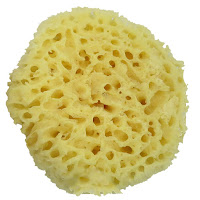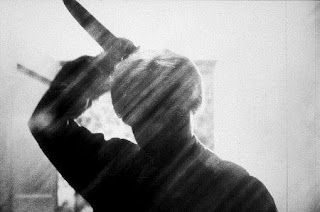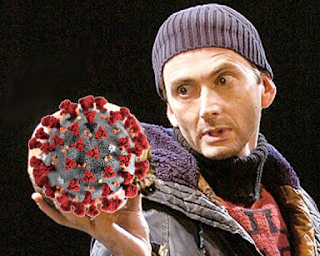Act IV, sc iii: We fat ourselves for maggots

The pacy, almost real-time movement continues into another short scene as Rosencrantz announces that they have brought Hamlet to the King. Claudius reveals something of Hamlet's popularity, which hasn't been directly alluded to before. 'He's lov'd of the distracted multitude' (IV.iii.4). Hamlet's wordplay also continues - in somewhat poor taste, perhaps. He refuses to give a straight answer to the question of where Polonius' body lies, but emphasises its corporeal nature as fodder for worms, and jokes that if it isn't found within a month then the King will be able to detect his decaying corpse and 'nose him as you go up the stairs' (IV.iii.36). It is at least a hint as to the location, and enables Claudius to dispatch his attendants in search of it. The air of melancholy and general futility of life that he expressed earlier in the play underlies sentiments such as 'we fat ourselves for maggots' (IV.iii.22). But death is ...



